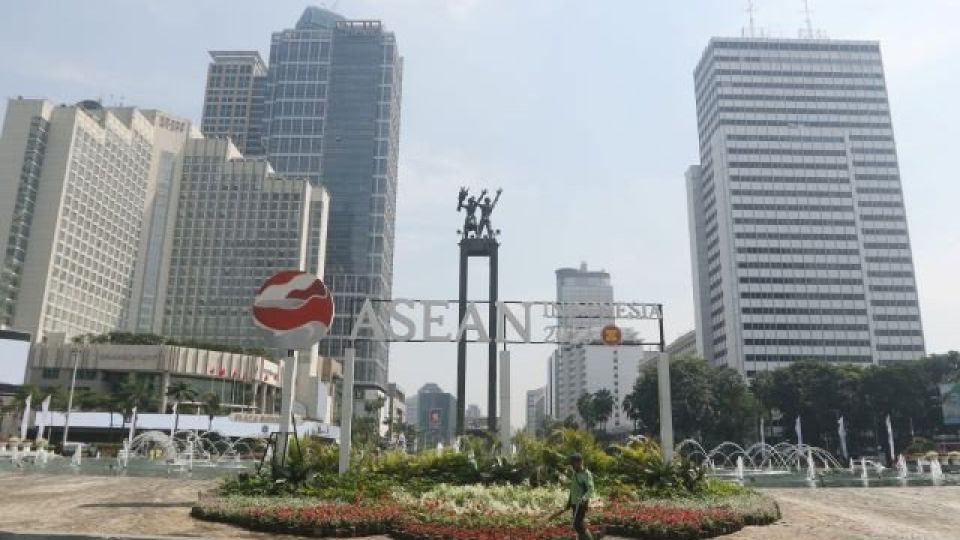February 27, 2024
JAKARTA – Indonesia has remained the leading diplomatic force with the most extensive network in Southeast Asia, a recent Global Diplomatic Index study has found, as China and the United States continue their fierce competition for influence.
The study, which was published by the Sydney-based Lowy Institute think tank on Sunday, ranked 66 countries around the world, broken down into categories of the Asian region, the G20 and the Organisation for Economic Co-operation and Development (OECD). It sought to measure each nation’s diplomatic prowess through mapped diplomatic footprints collected from mid to late 2023.
The findings came against the backdrop of a volatile geopolitical landscape rife with conflicts, caused by, among others, the unabating war in Ukraine and the competition between Washington and Beijing that has put the Asia-Pacific region under the spotlight in recent years.
In the Asian region, China has the most substantial global reach with 274 diplomatic posts around the world, followed by Japan with 251 posts and Russia with 230.
While Indonesia ranked sixth in the Asia region, it holds the most extensive global diplomatic network of any Southeast Asian country, operating 130 diplomatic missions across 95 countries.
In the overall ranking of the 66 countries, Indonesia was the country with the 23rd highest number of diplomatic posts abroad. The top three overall positions were held by China, the US and Turkey.
While Indonesia’s 23rd position is neither a decline nor an improvement from the previous study, the most recent finding noted that Indonesia’s diplomatic network has declined by three posts since 2017.
“Indonesia’s network is concentrated in Asia, Europe and the Middle East, with limited representation in Latin America and Africa,” said the Lowy report.
Jakarta also ranked 6th overall among cities hosting the most foreign diplomatic posts, surpassing Washington, DC, Beijing and Canberra, with 75 foreign stations stationed in Indonesia’s capital. However, only diplomatic posts operated by the 66 countries in the study were accounted for in the index.
Meanwhile, Thailand’s Bangkok was in 17th place, hosting 59 diplomatic posts, and Singapore placed 19th spot with 58 posts.
Last year, a separate Lowy study measuring 26 countries’ power index found that Indonesia’s influence in Asia lies in its diplomacy instead of military prowess, with Jakarta’s diplomatic convening power ahead of Washington’s and only second to China’s.
Race to the top
Amid the heated race for influence between Washington and Beijing, China has emerged as the leading country in the overall Global Diplomacy Index by a slight margin when it comes to diplomatic networks.
Beijing’s network totaled 274 posts across 176 countries, while Washington’s reach included 271 posts in 173 countries.
In Southeast Asia, which Lowy has grouped in the “East Asia category”, China was found to have a larger presence than the US. But in other territories like Europe, North and Central America, and South Asia, Washington was found to have a stronger reach.
“China’s rise to the top spot was rapid. In 2011, Beijing lagged behind by 23 diplomatic posts,” the study said. “By 2023, the gap narrowed [to] China [being] ahead by just three posts.”
ASEAN countries have for years been forced to walk a tightrope to balance their relationships with the two superpowers, a collective attempt that at times has proven to be an arduous undertaking. But other studies have also found that Southeast Asian countries have managed to be more diplomatically dynamic than ever before, debunking narratives that they are helpless in the face of the race.
Australia, which ranked 26th in its overall diplomatic network and has established military alliances with the US and the United Kingdom to counter China’s rise, has placed special attention to Indonesia amid the competition.
“Jakarta is the largest post in Australia’s global diplomatic network by number of staff, reflecting the importance of Indonesia and ASEAN to Australia’s foreign policy,” the study said.


